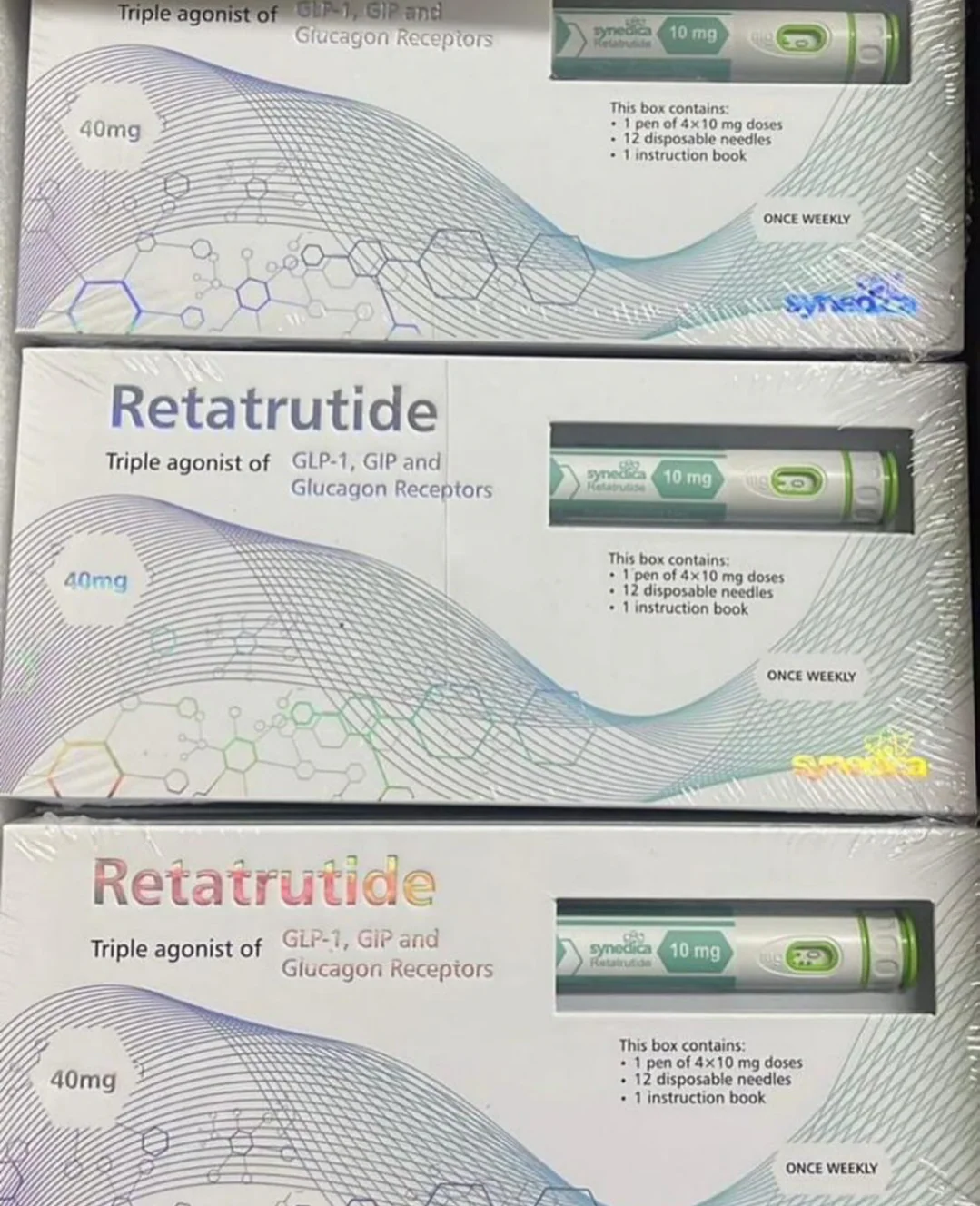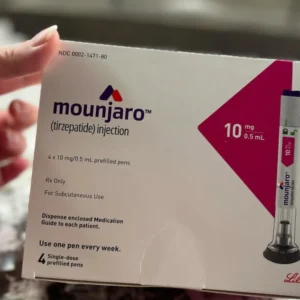BUY Retatrutide 12mg
Retatrutide (LY3437943) is an investigational, once-weekly injectable peptide developed by Eli Lilly for obesity, type 2 diabetes, and fatty liver disease. The 12mg dose, administered via subcutaneous injection, is the highest studied in phase 2 trials, showing significant weight loss and metabolic benefits. It’s not yet FDA-approved, with phase 3 trials (TRIUMPH) ongoing until 2026. It’s not for type 1 diabetes or children under 18.
BUY Retatrutide ONLINE USA
Mechanisms of Action
Retatrutide is a triple agonist, targeting GLP-1, GIP, and glucagon receptors. GLP-1 reduces appetite and slows digestion, GIP lowers post-meal blood sugar and enhances fat metabolism, and glucagon promotes fat burning by increasing energy expenditure. This multi-receptor approach yields superior weight loss compared to dual agonists like tirzepatide, with a half-life of ~6 days for sustained effects. Phase 2 trials showed a 24.2% mean weight reduction at 12mg over 48 weeks.
BUY retatrutide peptide
Weight Loss: Achieves 24.2% (57.8 lbs) mean weight loss at 48 weeks, with 26% of users losing ≥30% body weight.
Blood Sugar Control: Reduces HbA1c by ~2%, with 72% of prediabetic users reaching normoglycemia.
Cardiometabolic Health: Lowers blood pressure, triglycerides, and LDL cholesterol.
BUY retatrutide dosing
Liver Health: Reduces liver fat, potentially aiding non-alcoholic fatty liver disease.
Benefits are dose-dependent, with 12mg showing the highest efficacy.
Dosage and Administration
Start at 1–2mg weekly for 4 weeks, escalating every 4 weeks (e.g., 2mg, 4mg, 8mg) to 12mg, as tolerated. Inject into the abdomen, thigh, or upper arm, rotating sites. Administer any time of day, with or without food. Store vials refrigerated (36–46°F). Regular provider check-ins ensure safe titration.
retatrutide dosage
Safety and Side Effects
Common side effects include nausea, vomiting, diarrhea, and constipation (mild to moderate, 20–40%), most pronounced during dose escalation. Serious risks include transient heart rate increases (peaking at 24 weeks) and rare pancreatitis. Only 1% showed elevated liver enzymes (ALT). Not suitable for those with severe liver/renal issues or thyroid cancer history.




Reviews
There are no reviews yet.